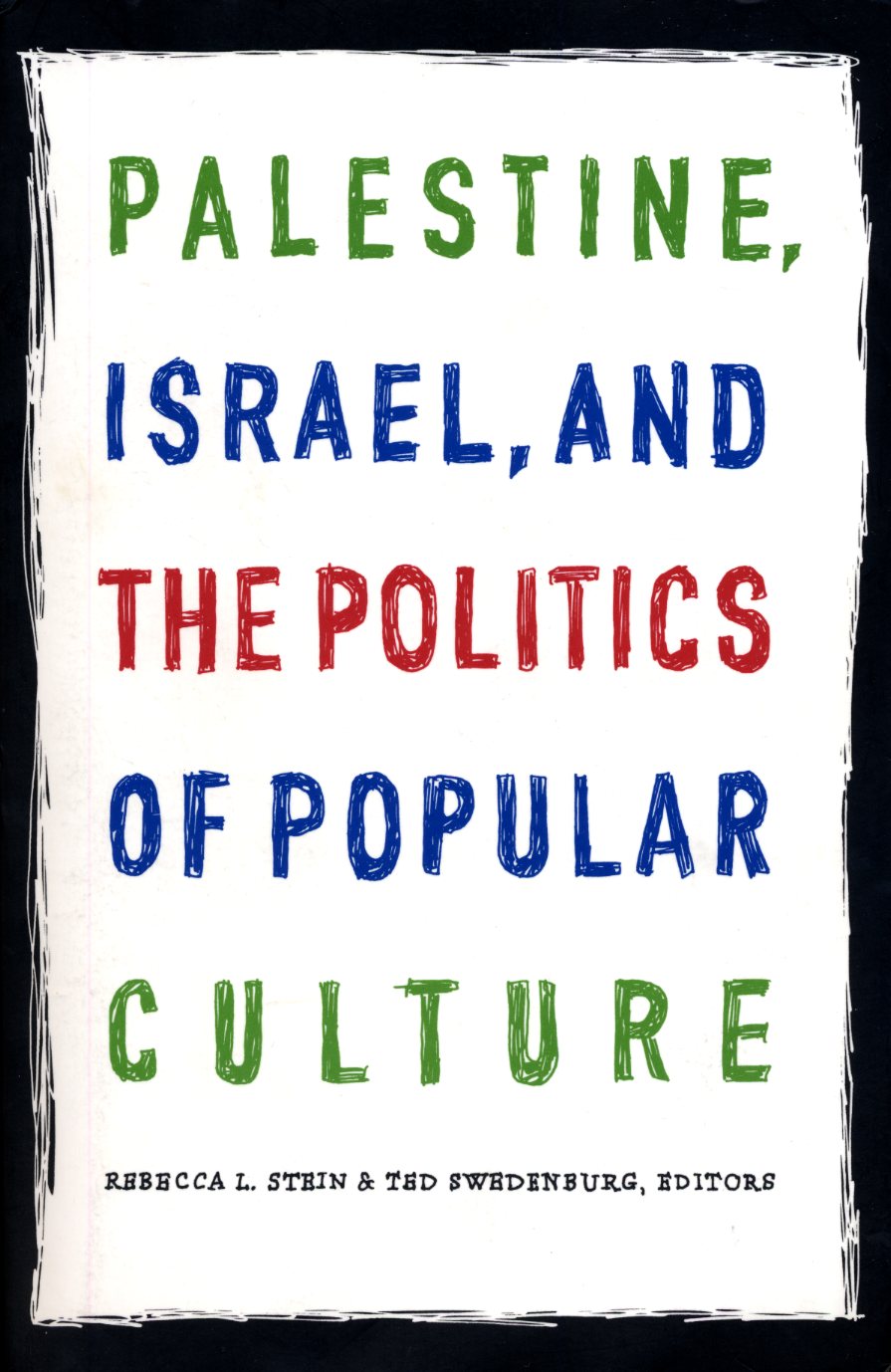Researchers Examine Influence of Culture in Palestinian-Israeli Relations
FAYETTEVILLE, Ark. — Ted Swedenburg, an anthropology professor at the University of Arkansas, believes that while political conflicts highlight division between Israelis and Palestinians, an examination of popular culture has a slightly different story to tell.
Swedenburg and his colleague Rebecca L. Stein, assistant professor of cultural anthropology at Duke University, have edited a book, “Palestine, Israel and the Politics of Popular Culture,” published by Duke University Press, that addresses this story.
“If you look at popular culture as a phenomenon, it can show you processes going on that would otherwise be invisible,” Swedenburg said.
The book emerged from a discussion between Stein and Swedenburg, who both felt there was a lack of comprehensive scholarly work on the subject of popular culture in Israel and Palestine. Most scholars focus on the political conflict in the region and frame popular culture through the same lens. But Swedenburg and Stein wanted to examine popular culture itself.
“Sometimes popular culture has an effect on politics and economics, and vice-versa,” Swedenburg said.
They invited scholars from diverse fields — ethnomusicologists, historians and literary critics — to write about Israeli and Palestinian culture and how they relate to or differ from one another.
The book examines popular culture from a historical perspective, beginning with an essay on Wasif Jawhariyyeh, a musician from Jerusalem during the late Ottoman-early Palestine Mandate era. This musician’s memoirs chronicled everyday life in Jerusalem at that time.
“You get a sense of life in Jerusalem where you have residents belonging to three different religions relating in some surprising ways,” Swedenburg said. The musician reported Muslims celebrating Purim and Christians observing Ramadan, powerful examples of cultural sharing.
These examples of communal celebrations begin to wane under the British rule when European Jews began to immigrate to Palestine in increasing numbers during the 1920s and 1930s, Swedenburg said. For example, Christians had traditionally picnicked on the grounds of the Dome of the Rock, but during British occupation, they were forbidden to do so — only Muslims were allowed to go there.
In this case, politics created a cultural divide, but it is one that has been bridged and continues to be bridged by music — the topic of Swedenburg’s essay in the book. He describes a complicated musical scene where Israeli Jews are performing Arabic music for varying audiences, including Palestinians.
Swedenburg illustrates this complexity by examining the life of Enrico Macias, a popular singer in France who has been called the Frank Sinatra of the Mediterranean. Macias is an Algerian Jew, born and raised in Algeria, who grew up speaking Arabic and French. During the 1950s and early 1960s, Macias played Andalusian music for Jewish and Muslim audiences alike. But in the mid-60s, after his musical master and future father-in-law was assassinated in Algeria, he moved to France, re-invented himself as a pop singer and became an avowed Zionist and supporter of Israel. In the late 1990s, he returned to traditional music of Arabic origins and recorded with an Algerian band, becoming a big hit with Jews, Arabs and the French.
“His kind of mindset is typical of Jews who are of Arab origin,” Swedenburg said. “The problem is our framework that divides people into Arabs and Jews.
“The story of Macias illustrates the contradictions and dilemmas people live with.”
Other essays in the book address Palestinian and Israeli cinema, the popular press, tourism and literature. One essay describes Palestinian cyberculture in Lebanese camps, where displaced Palestinians in refugee camps correspond via the Internet with people who remain in Palestine, often using old dialects. Another essay describes the popularity of the Christian evangelical series “Left Behind” and the implications of its popularity for both Muslims and Jews. Yet another essay examines the world of comics, focusing on author Joe Sacco’s work “Palestine” and its depiction of life in the Occupied Territories in the early 1990s.
“The volume insightfully illuminates the often marginalized issue of the politics of culture within the contested terrain of Palestine and Israel,” said Ella Shohat, professor of Middle Eastern studies and cultural studies at New York University.
Contacts
Ted Swedenburg, professor, anthropology, J. William Fulbright College of Arts and Sciences, (479) 575-6624, tsweden@uark.edu
Melissa Lutz Blouin, managing editor, science and research communications, University Relations, (479) 575-5555, blouin@uark.edu
Headlines
PetSmart CEO J.K. Symancyk to Speak at Walton College Commencement
J.K. Symancyk is an alumnus of the Sam M. Walton College of Business and serves on the Dean’s Executive Advisory Board.
Faulkner Center, Arkansas PBS Partner to Screen Documentary 'Gospel'
The Faulkner Performing Arts Center will host a screening of Gospel, a documentary exploring the origin of Black spirituality through sermon and song, in partnership with Arkansas PBS at 7:30 p.m. Thursday, May 2.
UAPD Officers Mills and Edwards Honored With New Roles
Veterans of the U of A Police Department, Matt Mills has been promoted to assistant chief, and Crandall Edwards has been promoted to administrative captain.
Community Design Center's Greenway Urbanism Project Wins LIV Hospitality Design Award
"Greenway Urbanism" is one of six urban strategies proposed under the Framework Plan for Cherokee Village, a project that received funding through an Our Town grant from the National Endowment for the Arts.
Spring Bike Drive Refurbishes Old Bikes for New Students
All donated bikes will be given to Pedal It Forward, a local nonprofit that will refurbish your bike and return it to the U of A campus to be gifted to a student in need. Hundreds of students have already benefited.





